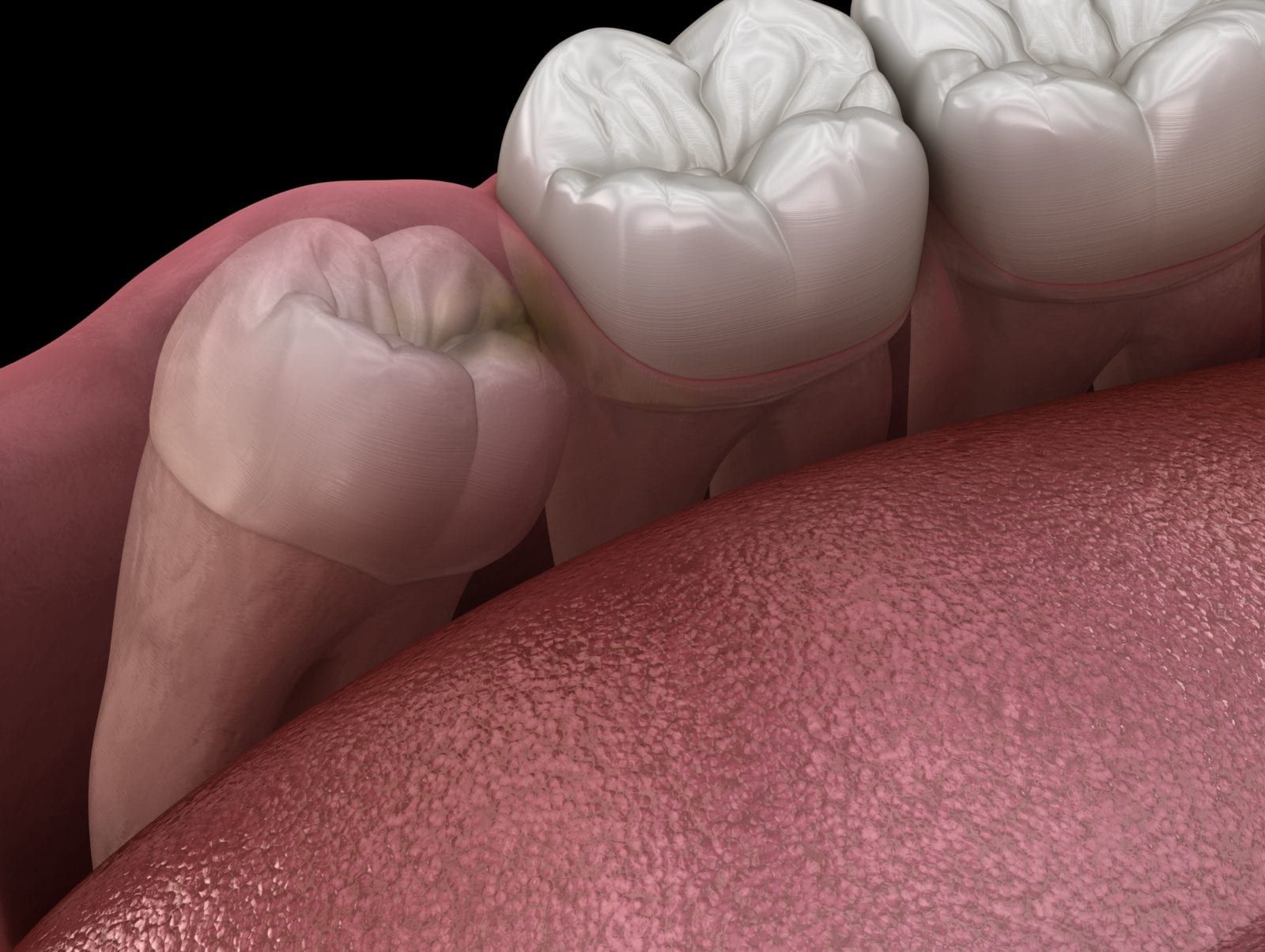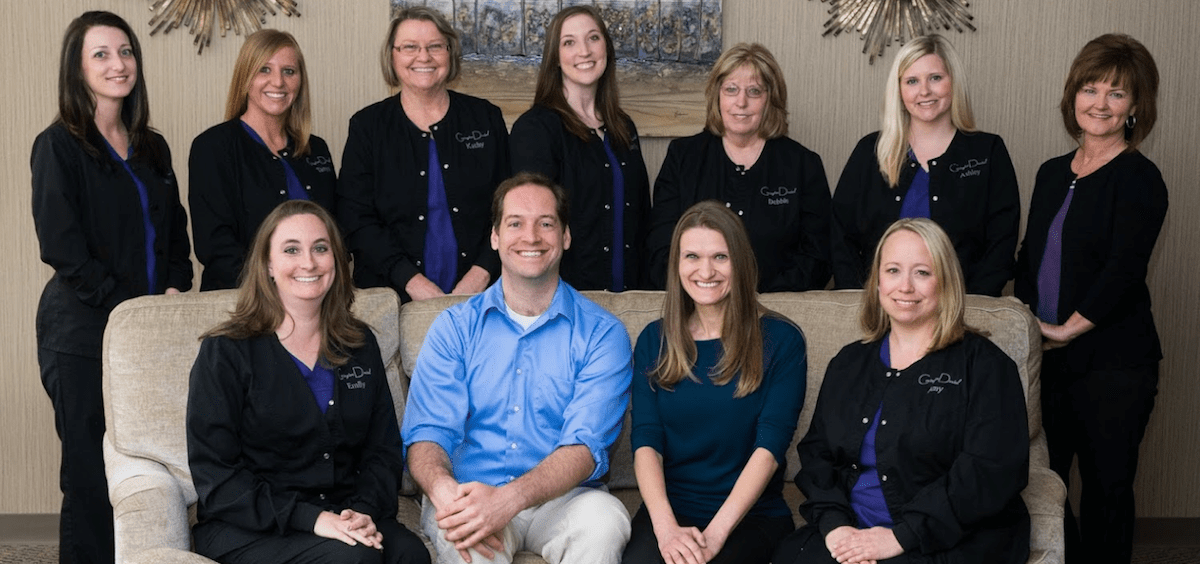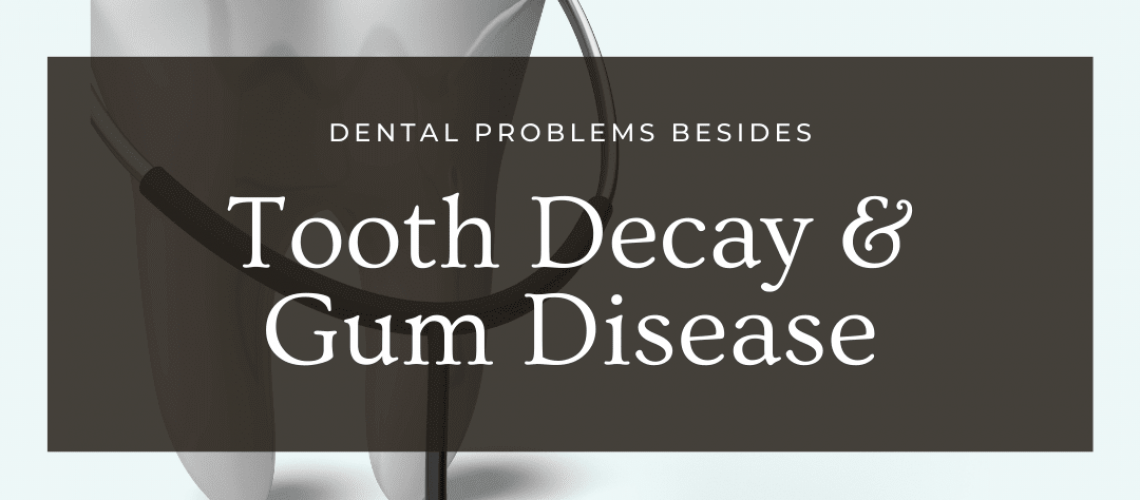Many people are familiar with tooth decay and gum disease, or have at least heard of them at some point. In fact, these are the two most common dental problems that general dentists see in their offices. Unfortunately, however, tooth decay and gum disease are not the only dental problems out there. Although not as common, there are other dental health problems that your general dentist is able to diagnose and treat. These can include:
A Dark Tooth
A dark tooth usually occurs as a result of trauma. When the tooth is trying to protect the nerve, it can appear slightly darker than the surrounding teeth or even look bruised. Your dentist will likely have you monitor the tooth to see if it changes. If it turns grey, then it means the inside of the tooth has died and needs to be removed with a root canal. A dark tooth accompanied by pain can also be a sign of a pulp infection, which also warrants a root canal.
Chipped Tooth
Even though enamel is the strongest substance in the human body, it is still able to be damaged. Generally speaking, chipped teeth can be the result of biting down on foods or objects that are excessively hard. Chips can also occur during sporting event accidents, falls, or any impact to the face. In some cases, teeth grinding and clenching can also cause teeth to chip. Luckily chipped teeth can usually be easily fixed by either reshaping the enamel or adding a composite material to the tooth.
Cracked Tooth
The majority of dental injuries result in chipped teeth, but sometimes they can result in a cracked tooth. Cracked teeth are caused by the same things that can cause chipped teeth, depending on how much force is being exerted and where it meets the tooth. When a tooth is cracked, or fractured, it will need to be restored with a dental crown. In the most severe cases of tooth fractures, it may need to be extracted.
Impacted Wisdom Teeth

Wisdom teeth erupt around the late teens and early twenties. Unfortunately, these teeth often cause problems when they erupt due to a lack of space in the mouth. Signs of impacted wisdom teeth include pain and swelling towards the back of the mouth, pain felt deep in the jaw, problems with chewing, and possible discharge. To prevent infection or further complications, impacted wisdom teeth are often extracted.
Bruxism
Bruxism is the term used to describe the act of grinding or clenching one’s teeth. Clenching is when you press your teeth together with force, while grinding takes it one step further by pressing the top and bottom teeth against one another while moving in a sideways motion. Bruxism is usually the result of stress and is an unconscious behavior that occurs while sleeping. It is extremely destructive and can cause enamel wear and damage. If you have bruxism, it is very likely that your dentist will prescribe a night guard.
Oral Thrush

Thrush is a fungal infection that occurs inside your mouth. It is characterized by a yeasty white film that accumulates in the mouth. People who have compromised immune systems, HIV/AIDS, cancer, uncontrolled diabetes, wear dentures, or who are on steroids are more likely to develop oral thrush than the general population. Oral thrush can generally be managed by prescribing medication.

Dr. Mark and Dr. Gina Covington are committed to providing their patients with the highest level of care. Both doctors are members of the Academy of General Dentistry as well as the American Dental Association. Locally, both belong to the Western Piedmont Dental society and the Foothills Dental Continuum. Because dentistry is a dynamic field, continued education is a paramount concern. Both Dr. Mark and Dr. Gina have completed several hundred hours of continued education to become proficient in the science and placement of dental implants. This course of study has allowed them to become Fellows of the International Congress of Oral Implantologists.


